The Necks and James McVinnie: The Secret Life of Organs at the Colston Hall
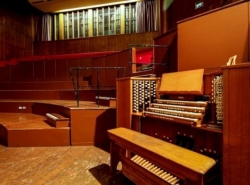
Posted on: 2016-04-14
Our rating:
Soloist, collaborator and previously assistant organist at Westminster Abbey and St Paul's Cathedral, James McVinnie in the first-half programme of music was thrilling.
The monumental and magnificent Harrison and Harrison organ at Bristol's Colston Hall was given a thorough workout when organist James McVinnie and The Necks played at the venue on Sunday 10 April 2016.
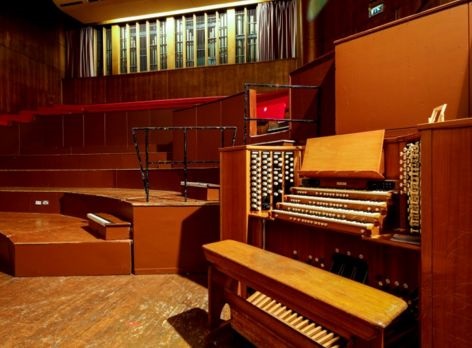
Produced by No-Nation, The Secret Life of Organs tour sees the performers travelling across the country throughout April showcasing the sonic possibilities of five organs, including - as well as in Bristol - the towering behemoths at Leeds and Birmingham's Town Halls, and the intimate chapel and church organs at London's Union Chapel and University of Sussex Meeting House Chapel.
It's a notable, praise-worthy endeavour too, as the organ - which is a pre-cursor to the contemporary synthesiser, after all - is an instrument generally ignored and neglected. It's easy to overlook just how incredibly diverse and dynamic the instrument's range is, being capable of producing sounds that are delicate and gossamer-light, sometimes even barely audible, and conversely thunderous, intense and bass-heavy enough to shake your very bowels.
Organist James McVinnie kicked off proceedings. Soloist, collaborator and previously assistant organist at Westminster Abbey and St Paul's Cathedral, his first-half programme of music was thrilling.
Philip Glass's Music in Similar Motion was a piece originally composed for piano but adapted for organ by McVinnie, and is typical of Glass's early, hypnotically minimalistic compositions: intense, insistent, relentless and reductively brilliant.
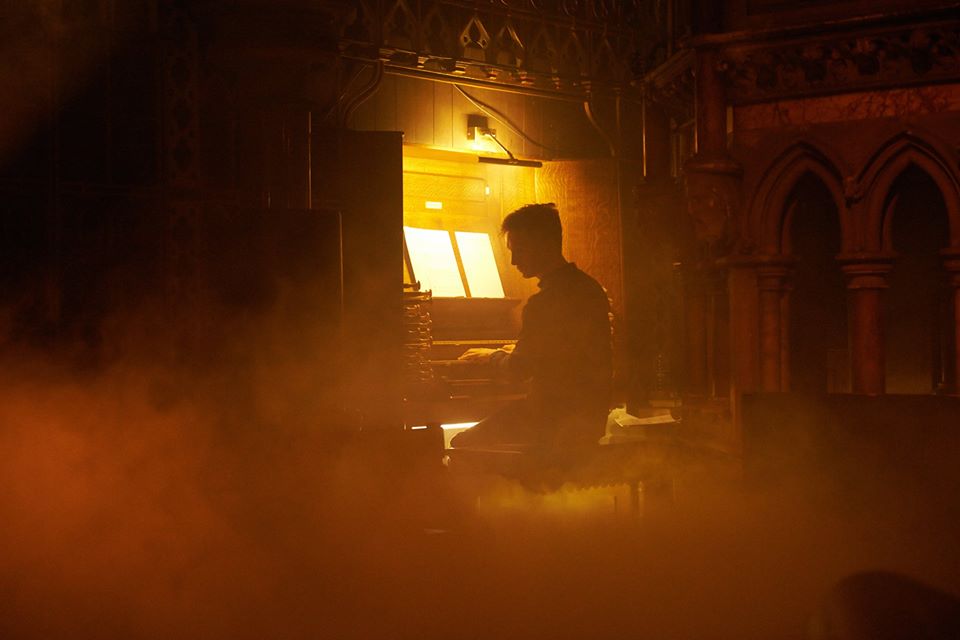
Next up was a piece specially commissioned for the tour written by Tom Jenkinson, a composer and bass player best known as the electronic music artist Squarepusher. Divided into two parts each comprising four sections, the piece was an exhilarating tour de force, pulling out all the stops (if you'll pardon the pun) of the dynamic, aural, technical and dramatic possibilities of the organ. It was a smorgasbord of sonic stylings, alternately playful, dark, brooding, filmic, dramatic, ethereal, mysterious, beautiful, haunting and finishing with a fantastic Phantom of the Opera-esque final movement flourish, stretching the instrument to the very maximum of its capabilities with a compositional and performance powerhouse.
Philip Glass's Mad Rush - composed in 1979 in honour of the Dalai Lama's visit to North America - represented the composer in more thoughtful, contemplative light and employed many of the musical tropes more redolent in his later works; repeating triplet figures, sustained bass hits and a flurry of mesmerizing, oscillating notes and ostinatos.
But, to borrow an oft-used sporting term, the concert was 'a game of two halves', for when Australian improvisitional cult band The Necks hit the stage, all hell broke loose - and not in a good way. Past commentaries and reviews have said it's impossible to pin-point the exact style and nature of their musical imaginings, neither minimalist, avant-garde, jazz or ambient. I can sum it up in two words: pointless noise. In fact, I could elaborate and add a few more pithy linguistic suggestions, but I'll reign it in.
With Chris Abrahams on organ, Lloyd Swanton on double bass and Tony Buck on drums, it was almost as if they'd allowed three clueless village idiots to lumber on to the stage, with one jabbing repeatedly at the organ on the same cluster of notes ad infinitum, the other hacking away at the double bass like a psycho-killer from a slasher movie, and another gormlessly banging away like an infant curiously discovering his first drum kit.
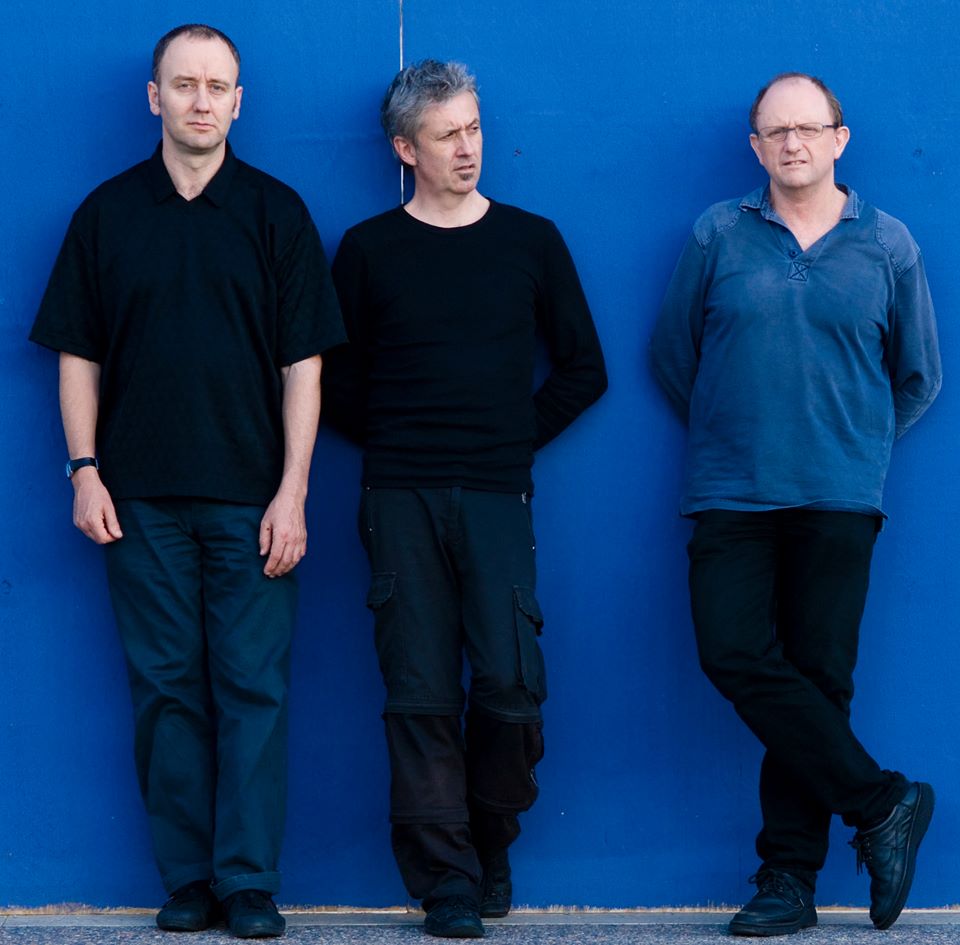
For 50 minutes. At least that was the length of time the eardrum-busting bilge lasted until I walked out. And I wasn't the only one. Before me, there had been a steady trickle of concert-goers making a hasty beeline for the nearest exit long before I gave up the ghost and decided the hellishness of the noise and the sheer amateur, skull-splitting cacophony of it all was either the result of creative genius I simply didn't understand or was one massive musical p***-take.
Still, they've got legions of fans, have released eighteen albums and established themselves as some kind of cult (a risky word to type when the dyspetic juices of rage are currently flowing so freely from my fingers), so what do I know?
Nevertheless, it was worth it for the musical professionalism, taste and sheer talent exemplified by James McVinnie in the first half, offering a rare insight into the grandeur, majesty and power of the Colston Hall's extraordinary organ.
James McVinnie: 5/5
Reviewed by Jamie Caddick for 365Bristol.com - The leading events and entertainment website for the city
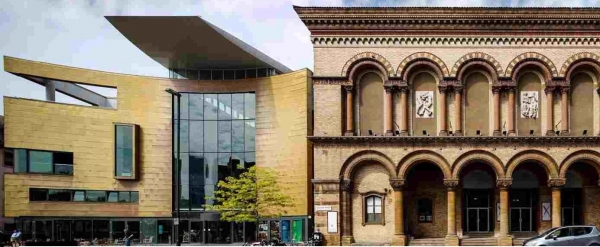
Article by:

Born and raised in the suburbs of Swansea, Jimmy moved to Bristol back in 2004 to attend university. Passionate about live music, sport, science and nature, he can usually be found walking his cocker spaniel Baxter at any number of green spots around the city. Call James on 078 9999 3534 or email Editor@365Bristol.com.

